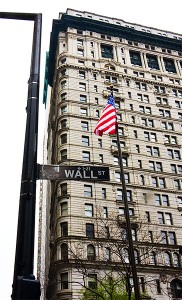
The lesson of the New Labour years that ended in the biggest global economic crisis since the 1930s is a simple one. ‘Shareholder value’ capitalism is a beast that cannot be made to serve social democratic purposes. By social democratic purposes, I mean those that see harm done to one citizen as harm done to all, and accept the value of collective institutions as positive means to limit that harm and so promote the general good. Social democracy doesn’t assume all ‘good’ is done collectively, but it certainly doesn’t have a general individualistic assumption either. In particular, social democracy gives weight to the idea of ‘solidarity’, which is why great inequality is so corrosive of its aims, and why universal welfare benefits, even if symbolic, cannot be given up too lightly.
The assumption of late twentieth century social democracy was first that unionised labour plus a strong state, then the state alone, and finally perhaps accounting sleights of hand by a clever chancellor, could offset the economic power concentrated by banks and large corporations. Pretty clearly, by the end, this social democracy wasn’t worthy of the name.
The problem lies in the obvious tension within capitalism. It serves a social purpose – the provision of goods and services and the development of new and more efficient ways of such provision – by channelling a private aim – the accumulation of wealth and economic power. But the accumulation of economic power by banks, firms and individuals is not just an important incentive, but ultimately also has an effect on the whole edifice. Power is power, and can be used outwith the economic sphere to maintain a distorted social/private balance of capitalism’s effects.
The pursuit of profit drives a dynamic capitalism that takes big strides in all directions at once. It reaches some desired outcomes more quickly, but reaches undesired ones more quickly too. Without the perfect markets and complete knowledge that standard economic theory assumes, innovation can be destructive, wasteful and downright fraudulent. The financial crisis, pervasive global poverty and its consequences, social division in the developed countries and global warming show that it is too dangerous to carry on in this way. A new, ‘clever capitalism’, that takes smaller steps but more consistently in the right direction, is needed.
But a clever capitalism cannot be achieved by direct government action. Capitalism needs a brain transplant. Its old brain responds efficiently to profit opportunities driven by the desires of shareholders (and incentivised managers), ignores any considerations that don’t impact on these, and attempts to circumvent those that might. Capitalism’s new brain must see human, social and environmental benefits as part of value creation for itself.
There was a brief period before the 1997 election when it looked like the idea of ‘stakeholder capitalism’, which explicitly recognises the tension at the heart of profit-driven business enterprise and seeks to mitigate it by empowering employees and the community at large in the decisions of otherwise independent businesses, might form part of Labour Party policy. The concept was quickly ditched when it became clear that its implications for corporate governance would be hotly contested. But it should be clear now, as perhaps it was not in 1997, that little purpose will be served by another Labour government that simply acquiesces in the power of ‘shareholder value’ to shape the world in its own image and to its own benefit.
We need a new and coherent approach to the aligning of business purposes and social democratic aims, and arguing for this should a central part of Labour’s alternative programme for government.
This article was also published on LabourList on November 1st 2010.
2 replies on “Towards ‘Clever capitalism’”
Any “new and coherent approach” needs a clear definition of social value.
J. Fagg Foster’s may be useful. Social value is that “which provides for the continuity of human life and the noninvidious re-creation of community through the instrumental use of knowledge.”
Marc R. Tool, a student of Foster’s, wrote A Discretionary Economy: A Normative Theory of Political Economy to help answer the question “Which way is forward?”
Professor Baldwin Ranson recently made a number of Foster’s writings and lecture notes available at http://jfaggfoster.org/IntroBR.html
Foster himself was a student of Clarence Ayres, whose The Theory of Economic Progress was somewhat lost in the fervor over Lord Keynes. It thoroughly indicts supply and demand pricing as a basis of human relations and is available at AFEE.net under classic institutionalist writings.
Cheers for your work!
Digger
http://moslereconomics.com/
Counter Insurgency, Deficit Terrorist Unit
Thanks for that. Will try to follow up.